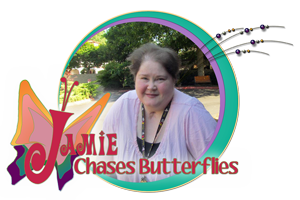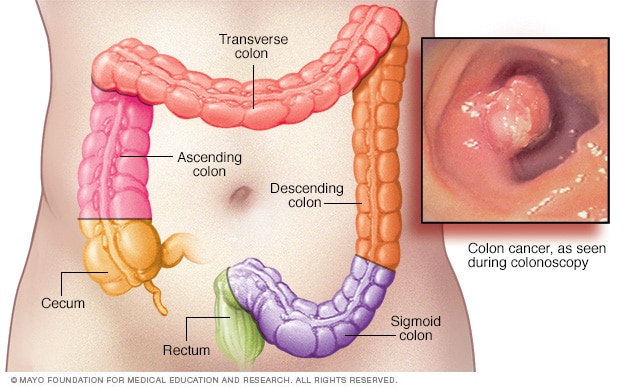March is Colon Cancer Awareness Month
Colorectal Cancer hits home for me because I lost my dad in 2005 from colon cancer. My dad chose to live well by eating a vegan diet, receiving alternative treatments that might help him feel better, and building better relationships with his family and friends and with Jesus. He inspired me to live well with my own illnesses. That being said, it is important to get colon screening done after you turn 45.
Colon Cancer is the 3rd most commonly diagnosed type of cancer in the United States for both men and women
Statistical Facts about Colorectal Cancer:
- 145,420 new cases of colon cancer are diagnosed every year in America; 51,900 are men and 49,730 are women.
- Cases of colon cancer affects all races and both female and male equally.
- If you catch colorectal cancer early the survival rate is increased to 90%.
- If colon cancer spreads to other organs survival rates reduce to 71%.
- If colon cancer is found in the late stage than only 14% of people with this diagnosis will survive.
Colorectal Cancer Screening is important so that it can get caught early
Cancer happens when there are changes in the cells of our body. Polyps are common tissue changes that usually begin in the large intestine. Many times polyps are benign, or non cancerous but the longer polyps exist, the chance of them becoming cancerous increases. Removing noncancerous polyps may prevent or reduce the chance of cancer forming in your colon or rectum. If cancer is not found early enough it will eventually invade the lymph nodes. If cancer metastasizes it can become wide spread throughout the body.
The risk factors you should be aware of when you go get your screening:
- Family history of colon cancer
- 50 years old or older
- Type 2 diabetes
- Crohns disease
- Ulcerative colitis
- If you are overweight
- If you are not physically active
- If you smoke
- If you drink a lot of alcohol
Another important aspect of catching colon cancer is listening to your body when it is giving you warnings that something is wrong. Here is what to watch for and go to the doctor right away:
- If you have rectal bleeding
- If you stool is dark or has blood in it
- If you have cramps or belly pain
- If you are weak and fatigue more than normal
The death rate from colorectal cancer has been dropping for more than 20 years because of better detection and treatment
There are many different types of screenings you can get done. They are:
- Digital rectal exam
- Fecal occult blood test
- Stool DNA test
- Barium enema with contrast
- Virtual colonoscopy
- Scope exams
If you have colon cancer you can still live well and here is how:
- Request an appointment with a dietician whether you have had surgery or not. They will help you to eat well while going through treatment
- Eat small meals
- Eat less red meat and more vegetables and whole grains
- Let people cook for you if they offer
- Don’t wait until you are thirsty to drink your water
- Suck on ice cubes to get more water
- Eat foods high in water content to help get more hydrated
- Walk at a slow pace
- Slowly reduce the amount you sit
- Don’t lift anything that is heavy as you are healing
- Build up to 150 minutes of moderate activity
- Break those 150 minutes into shorter sessions
- Invite a friend to go with you
- Stop smoking
- Reduce alcohol consumption to 1 drink per day or quit altogether
Those of us who are 45 years old or older, it is time to get screened for colon cancer. I will be asking my doctor about this. Will you join me? If you need any other ideas about moving slowly to get moderate activity Karen Clemenson will be happy to do it with you. She will make you laugh while doing it.
Here are some links I would like to share with you:
- Colorectal cancer: get screened, catch it early by Tri-County Health Care Staff
- Colorectal Cancer: Statistics by American Society of Clinical Oncology Staff
- Healthy Living Tips by Colorectal Cancer Alliance Staff
- Living with & beyond bowel cancer by Bowel Cancer UK Staff
- Living with CRC by Fight Colorectal Cancer Staff
- Myth: Colon Cancer is a “men’s disease” by West Jefferson Medical Center, LCMC Health Staff
- National Colorectal Cancer Awareness Month by Colorectal Cancer Alliance Staff
- Six Ways to Lower Your Risk for Colon Cancer by Stacy Simon of American Cancer Society
Related Articles
- What is Cancer and How You Live Well Despite It!
- Learning About Testosterone Replacement Therapy
- Fat Cells 405: Fat Cells and Eating Disorders
- Fat Cells 300: Washing Fat Cells
- Be Your Own Advocate
 Jamie Holloway lives in the Portland, Oregon area. Since October 2011 she has been sharing her Journey Toward Health and Wellness with Vasculitis through her blog at JamieChasesButterflies.com. As most of her articles will be about Men’s Health, Jamie intends to write her articles as though she was sharing important information with her brother, nephews and friends. We hope you are as inspired as we are with the raw candor Jamie uses in her writing. If you would like to help support Jamie’s writing efforts please Donate now.
Jamie Holloway lives in the Portland, Oregon area. Since October 2011 she has been sharing her Journey Toward Health and Wellness with Vasculitis through her blog at JamieChasesButterflies.com. As most of her articles will be about Men’s Health, Jamie intends to write her articles as though she was sharing important information with her brother, nephews and friends. We hope you are as inspired as we are with the raw candor Jamie uses in her writing. If you would like to help support Jamie’s writing efforts please Donate now.













